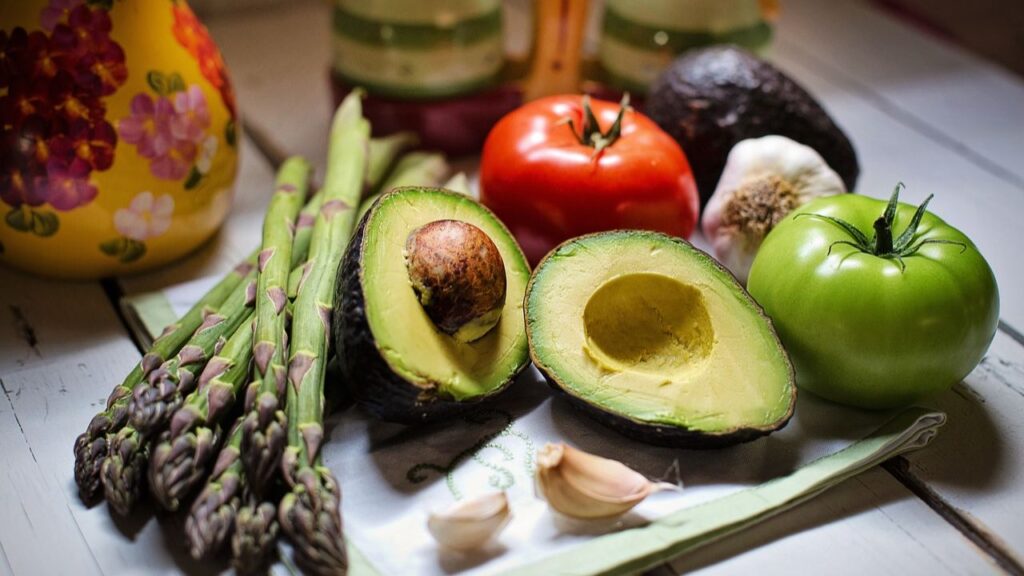The journey toward a vegan lifestyle can be both exciting and intimidating. Many people are drawn to the idea of veganism due to its myriad health benefits, ethical considerations regarding animal welfare, and positive impacts on the environment. However, the thought of giving up beloved foods can make the transition seem daunting. Fortunately, making the switch to a vegan diet doesn’t mean sacrificing taste or enjoyment. In this blog, we’ll explore practical steps to ease the transition, delicious alternatives to your favorite non-vegan foods, and the numerous benefits of embracing a vegan lifestyle.
Why Choose Veganism?
Before we dive into the practicalities of switching to a vegan diet, let’s look at some compelling reasons to consider this lifestyle change:
Health Benefits
Research suggests that a well-planned vegan diet can lead to various health benefits, including:
- Lower Risk of Chronic Diseases: A study published in the Journal of the American Heart Association found that individuals following a plant-based diet had a lower risk of developing heart disease and hypertension. Vegans have been shown to have lower cholesterol levels and a reduced risk of type 2 diabetes.
- Weight Management: The American Journal of Clinical Nutrition reported that vegans tend to have lower body mass indexes (BMIs) compared to omnivores. Plant-based diets are often lower in calories and high in fiber, which helps maintain a healthy weight.
- Increased Nutrient Intake: Vegan diets are typically rich in vitamins, minerals, and antioxidants, thanks to the abundance of fruits, vegetables, legumes, nuts, and whole grains. These nutrients are essential for optimal health and can help prevent nutrient deficiencies.
Environmental Impact
Veganism can significantly reduce your carbon footprint. According to a 2018 report by the United Nations, the livestock sector generates more greenhouse gas emissions than all the world’s cars, planes, and trains combined. Adopting a vegan diet can help combat climate change, as plant-based foods generally require fewer resources, such as water and land, compared to animal products.
Ethical Considerations
Many people choose veganism for ethical reasons, driven by concerns for animal welfare. The Humane Society International estimates that more than 80 billion farm animals are raised for food globally each year, often in inhumane conditions. By going vegan, individuals can take a stand against animal cruelty and exploitation.
How to Make the Switch to a Vegan Diet
Transitioning to a vegan diet doesn’t have to be overwhelming. Here are some practical steps to help you ease into this new lifestyle:
Educate Yourself
Understanding the principles of veganism and the reasons behind it can help reinforce your commitment. Read books, watch documentaries, and follow vegan blogs to learn about the health benefits, ethical considerations, and environmental impact of plant-based eating. Some recommended documentaries include:
- “Forks Over Knives”: Explores the health benefits of a whole-food, plant-based diet.
- “What the Health”: Investigates the connections between diet, disease, and the environment.
- “Cowspiracy”: Focuses on the environmental impact of animal agriculture.
Start Gradually
You don’t have to go vegan overnight. Consider starting with one day a week—often called “Meatless Monday”—to explore plant-based meals. Gradually increase the number of vegan meals you consume each week until you feel comfortable making the full switch.
Discover Vegan Alternatives
The key to a satisfying vegan diet is finding delicious alternatives to your favorite non-vegan foods. Here are some common substitutes:
- Dairy Milk: Try almond milk, soy milk, oat milk, or coconut milk as dairy alternatives. Each has its unique flavor and can be used in cooking, baking, and coffee.
- Cheese: Nutritional yeast is a popular cheese substitute that adds a savory flavor to dishes. There are also many plant-based cheese options available made from nuts or soy.
- Meat: Look for plant-based protein sources like lentils, chickpeas, tofu, tempeh, and seitan. There are also various meat substitutes available in stores that replicate the taste and texture of meat.
- Eggs: Flaxseed meal or chia seeds mixed with water can be used as an egg replacement in baking. Silken tofu is another great option for scrambles and quiches.
- Desserts: Replace butter with coconut oil or applesauce in baking. Explore vegan desserts made with plant-based ingredients to satisfy your sweet tooth.
- Vegan Supplements: Choosing a vegan lifestyle doesn’t mean that you have to miss out on the nutrition your body needs. There are many good vegan supplements available on the market.
Focus on Whole Foods
While many vegan substitutes are available, focusing on whole, minimally processed foods can provide the most health benefits. Fill your plate with:
- Fruits and Vegetables: Aim for a rainbow of colors to ensure a diverse nutrient intake.
- Whole Grains: Brown rice, quinoa, oats, and whole wheat pasta are excellent sources of carbohydrates and fiber.
- Legumes: Beans, lentils, and peas are rich in protein, fiber, and essential vitamins and minerals.
- Nuts and Seeds: Incorporate almonds, walnuts, chia seeds, and flaxseeds for healthy fats and protein.
Discover More: A Guide to Nutritious Foods You Can Grow at Home
Meal Prep and Planning
Planning your meals in advance can help you stay on track and avoid the temptation of non-vegan options. Dedicate time each week to prepare meals and snacks. Having a variety of easy-to-prepare recipes on hand can make the transition smoother.
Seek Support
Connect with others who are following a vegan lifestyle. Online forums, social media groups, and local meetups can provide valuable resources, recipe ideas, and encouragement. If possible, find a friend or family member who is interested in going vegan as well to support each other during the transition.
The Rewards of Going Vegan
Transitioning to a vegan diet comes with its own set of challenges, but the rewards are worth the effort. You’ll not only be improving your health, reducing your environmental impact, and supporting animal welfare, but you may also discover a newfound love for cooking and trying diverse cuisines. Embracing veganism can open your palate to new flavors and experiences, transforming the way you view food altogether.
Key Facts and Figures
- Veganism is on the rise: According to a 2021 survey by The Vegan Society, the number of vegans in the UK alone quadrupled between 2014 and 2020, and similar trends are observed worldwide.
- Plant-based eating is linked to longevity: Research published in the American Journal of Clinical Nutrition shows that individuals who follow a plant-based diet have a 25% lower risk of dying from heart disease.
- Vegan diets can be nutrient-rich: A well-planned vegan diet provides adequate protein, iron, calcium, and vitamins such as B12 and D, particularly when fortified foods and supplements are included.
Conclusion
Choosing to adopt a vegan lifestyle is a journey that comes with numerous benefits for your health, the environment, and animal welfare. While the transition may seem overwhelming at first, with the right knowledge, resources, and support, you can enjoy the rich flavors and variety that a vegan diet has to offer. Remember, it’s not about perfection; it’s about making conscious choices that align with your values and health goals. So go ahead—explore the delicious world of plant-based eating and embark on a fulfilling journey toward veganism!


